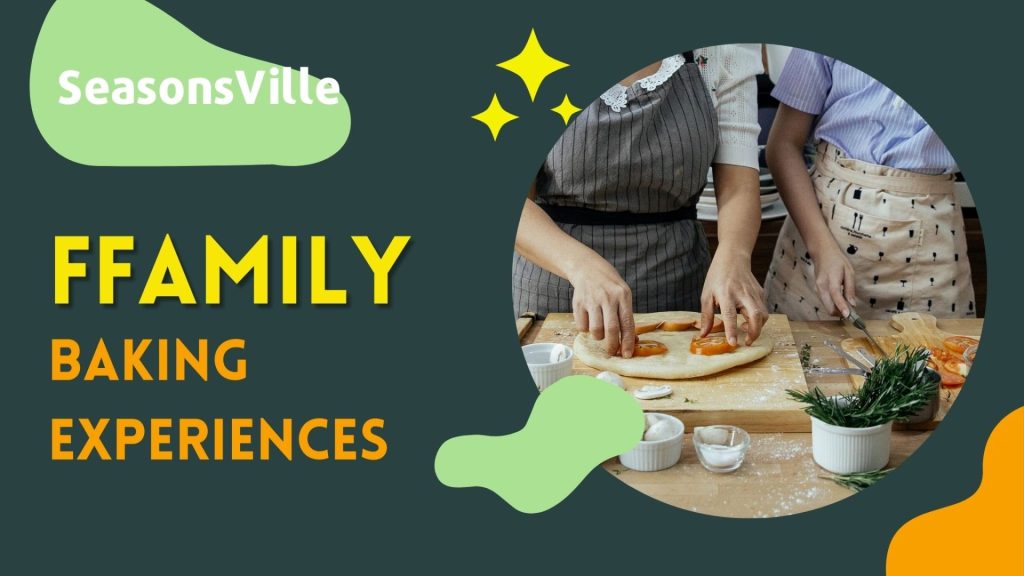
Exploring Cultural Cuisine through Family Baking Experiences
- Lutful Ahmed
- July 18, 2023
- 5:08 am
- No Comments
Family baking experiences provide a wonderful opportunity to embark on a culinary journey and explore the diverse flavors and traditions of different cultures. Baking, in particular, allows families to delve into the world of cultural cuisine and create delicious treats that reflect the heritage and flavors of various regions. In this article, we will delve into the joys of family baking experiences and how they can be a gateway to exploring and embracing cultural cuisine.
Embracing Culinary Diversity:
Family baking experiences enable families to embrace culinary diversity and expose children to the richness of different cultural cuisines. By exploring recipes from various regions, families can learn about the unique ingredients, techniques, and flavors that define each culture’s culinary identity. Baking provides a tangible and delicious way to connect with different cultures and appreciate the world’s culinary tapestry.
Trying Authentic Recipes:
Through family baking experiences, families can try their hand at authentic recipes passed down through generations or discovered from diverse cultural sources. Whether it’s baking Italian biscotti, French macarons, Indian naan bread, or Mexican churros, families can recreate beloved recipes from around the globe in the comfort of their own kitchen. This hands-on approach allows for an immersive experience that goes beyond just taste, connecting families to the cultural heritage associated with each recipe.
Learning about Traditional Ingredients:
Baking experiences provide an opportunity for families to explore and learn about traditional ingredients used in different cultural cuisines. From exotic spices to unique flours and sweeteners, each culture has its own set of ingredients that contribute to the distinctiveness of their culinary creations. Families can research and discuss these ingredients, their significance, and how they contribute to the overall flavor profile of the baked goods.
Discovering Baking Techniques:
Baking is not only about the final product but also the techniques involved. Family baking experiences allow families to discover and learn different baking techniques associated with cultural cuisine. Whether it’s the delicate folding of meringue for a French soufflé, the art of shaping dough for Chinese mooncakes, or the intricate piping for Austrian strudel, each technique adds a layer of authenticity and craftsmanship to the baking process.
Engaging in Food History and Stories:
Baking experiences provide an opportunity to engage in food history and stories associated with different cultural cuisines. Families can explore the origins of traditional recipes, the cultural significance of specific baked goods, and the stories behind cherished family recipes. This exploration sparks conversations about traditions, customs, and the role of food in shaping cultural identities.
Creating Lasting Memories:
Family baking experiences create lasting memories and bonding opportunities. As families come together in the kitchen, they share in the excitement of exploring new recipes and flavors. Baking becomes a shared experience that strengthens family connections and creates a sense of togetherness through the preparation and enjoyment of cultural treats.
Conclusion:
Family baking experiences offer a gateway to exploring and embracing cultural cuisine. Through these experiences, families can try authentic recipes, learn about traditional ingredients, discover baking techniques, and engage in food history and stories. By embracing the joys of baking and cultural exploration, families can broaden their culinary horizons, deepen their understanding of different cultures, and create lasting memories that celebrate diversity and togetherness. So, gather your loved ones, put on your aprons, and embark on a flavorful journey of family baking experiences that transcend borders and celebrate the delicious tapestry of global cuisine.
Thanks for reading! For more insightful articles on fostering independence and responsibility through baking kits for kids, please visit: https://seasonsville.com/blog/

